

The blockchain gaming industry has caused great excitement; it represents a fundamental shift in the way we play, create, and monetize games. Yet, despite the benefits and potential opportunities of blockchain gaming, there are complex challenges and uncertainties – particularly as the market is in a prolonged bear period. Under these conditions, how can aspiring blockchain game creators begin a project? And, more importantly, how can they avoid the same mistakes that have proved costly to many other developers?
Understanding the Market Dynamics
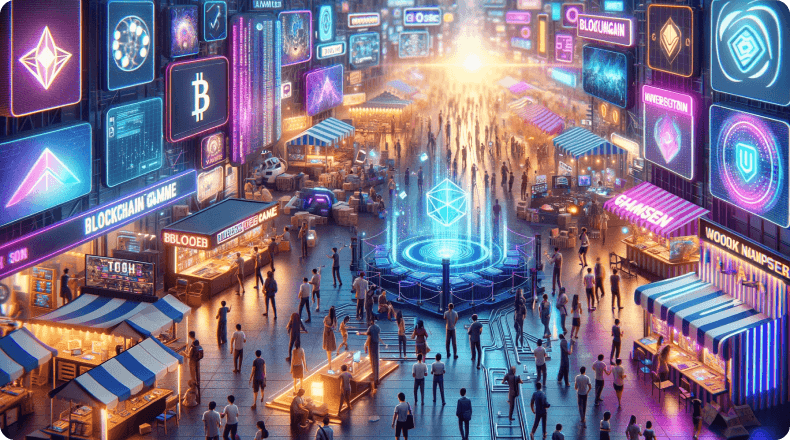
It is important for developers to understand the current state of the crypto market and the fact that this market impacts – and is impacted by – blockchain gaming. The crypto market is well-known for being one of the most volatile and unpredictable markets around, mainly as a result of factors such as investor sentiment, media coverage, regulations, and technological innovation. These factors can significantly impact the demand, supply, and price of both cryptocurrencies and tokens – the primary medium of exchange and reward in many games.
For game creators, the key is to understand the trends and cycles in crypto markets that are most relevant to their niche and audience. Understanding market dynamics allows developers to align their vision, goals, and strategies with the market realities and expectations. It also means developers can anticipate and prepare for the potential risks and opportunities that lie ahead. To ensure you cover all essential aspects of your project, refer to this game development checklist for comprehensive guidance throughout the development process.
Lessons from Past Failures
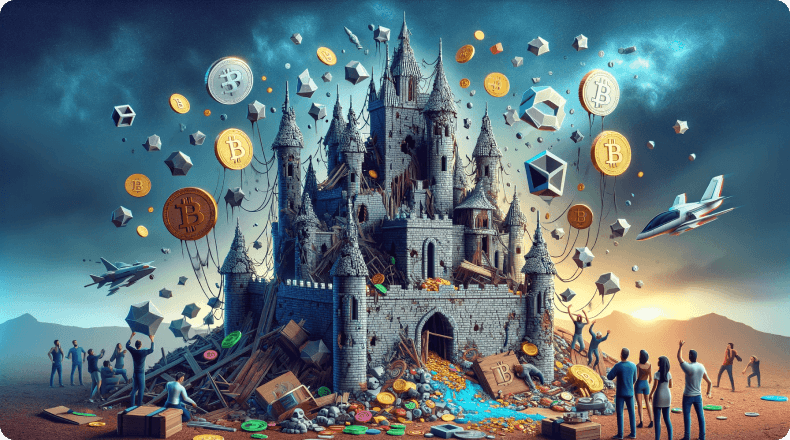
DeFi entertainment is still in a very early and experimental stage – and as such, there have been far more failures and disappointments than successes in the space over the past 2-3 years. There are a few different reasons why today’s blockchain game startups have failed, often including one or more of the following:
• Overspending: Some game startups have overextended themselves, spending too much money on blockchain game development, marketing, or token sales, without a realistic and clear budget plan or revenue model.
• Overpromising: Some game startups have overhyped their projects, promising the moon and the stars to investors, users, and partners, without any product to show or proof of concept to offer.
• Neglecting user experience: Some game startups have been too preoccupied with the technical aspects of their gaming blockchain projects, such as distributed ledger integration, token economics, or smart contracts, at the expense of the user experience, including gameplay, design, and usability.
Some examples of failed distributed ledger game startups and the lessons learned from them are:
• The Abyss: The Abyss was a blockchain-based digital distribution and gaming platform where developers could upload, crowdfund, and profit from their digital games, with users using ABYSS tokens for rewards, purchases, and bets. In its 2018 ICO, it raised $15 million. But it never implemented any of those features and no games.
• Lesson: Don’t bet the farm on token sales or ICOs. Instead, create a well-thought-out and diversified revenue model to support your blockchain game development platform or crypto gaming project.
Building a Sustainable Business Model
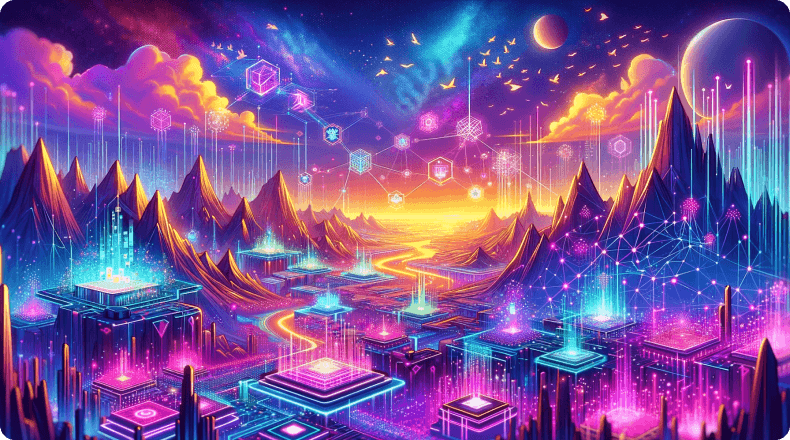
One of the foremost difficulties that blockchain game developers must confront is how to establish a business model that can thrive in the turbulent and uncertain market. A business model, for those unfamiliar, is simply how a project creates value and revenue from its products and services, thus allowing it to ultimately turn a profit.
In light of this, blockchain game developers should not rely on a single income source, such as crypto token sales, in-game items purchases, or advertising, but instead look to monetize their games through a variety of complementary techniques, such as subscriptions, sponsorships, partnerships, or licensing. They should optimize their blockchain game development process and assets, such as leveraging existing platforms, tools, or frameworks, instead of having to build them from scratch, and prioritize only the most essential and valuable features and functionalities, rather than including those that are superfluous or unnecessarily complex.
With the ongoing shift to Web3 and Blockchain, game development enthusiasts must also adopt a cost-effective and efficient marketing and user acquisition strategy that is based on real data and extensive research, instead of gut feelings or guesses. They must test and analyze the most effective ways to acquire high-value users, create brand awareness, and ultimately, generate substantial demand, and also strive to produce viral content that is fun, engaging, and shareable and that is easy and effective to distribute and that has the potential to go viral. Ultimately, game developers must establish a clear and pragmatic financial model that realistically and reliably calculates and projects their possible revenue, costs, and cash flow and defines realistic and achievable goals and milestones to shoot for.
Prioritizing User Experience and Engagement
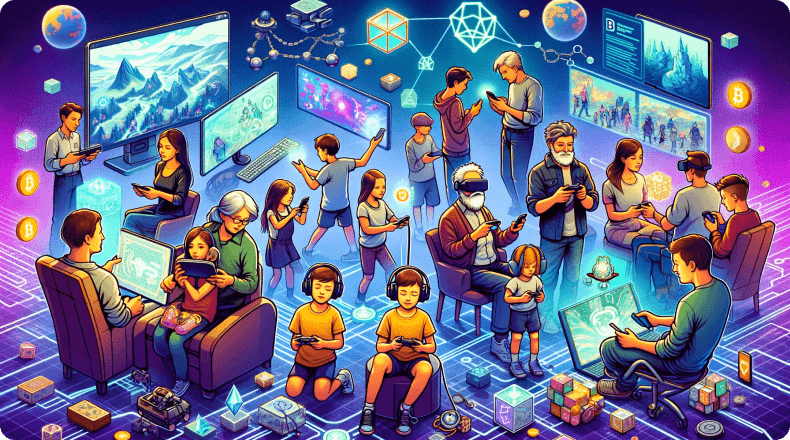
Another one of the key challenges that blockchain game developers face is that they need to put user experience and engagement first, as the user experience is everything a player perceives and loves when they interact with a video game, and it particularly encompasses things like the gameplay, the design, the usability, and the accessibility. For blockchain game developers to put the user experience and engagement first, means that they have to acquire, retain, and monetize their user base regardless of market conditions. So, how can they do that? They must contemplate on:
• How significant it is to give users full control and ownership over their characters, items, tokens, or rewards, and letting them trade or exchange them outside of the game and across any other game or platform.
• What it really means to empower gamers to participate in the creation and governance of the game by staking, challenging, voting, validating, or nominating, among others.
• How peripheral it is to engage and respect your gaming community always, efficiently, and transparently, for example with frequent newsletter updates, real-time interviewing, and public forums.
• How impactful it is to leverage, integrate, or develop open-source or proprietary SDKs, APIs, or standard protocols to facilitate and optimize game development and its assets, such as wallets, payments, or marketplaces.
Game creators should emphasize on designing game experience that is enjoyable, engaging, and rewarding for the players. They should balance the user level and the challenge level, the risk versus the reward, and the random versus the regular. They also should guarantee that their games are usable for the user and understandable for the user, regardless of their technical expertise and experience. They should simplify their account setup and login process, such as using email, social media, or even phone verification – instead of requiring crypto basics and custody, such as private keys, wallets, or KYC.
Community building: Blockchain game developers should create and engage with a loyal and active community around their games. They should provide regular and meaningful interaction and communication with the users, and listen and respond to their feedback, suggestions, and complaints.
Smart Funding and Resource Allocation
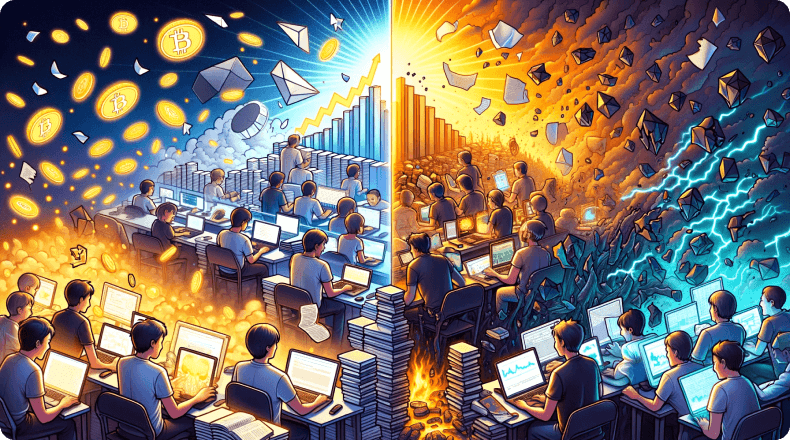
Another key challenge for the blockchain gaming industry is raising and managing funds and resources for a gaming project. Smart funding and resource allocation means that game developers can secure enough funds and resources to support their project, while minimizing risks and costs.
Game creators should explore various funding options that are available and are suitable for their projects, including bootstrapping, crowdfunding, grants, angel investors, venture capitalists, and other partnerships.
Game creators should have a clear and realistic budget plan that is based on data and research methodologies, rather than assumptions and speculation. They should be able to estimate their potential revenue, expenses, and cash flow, and have realistic and achievable goals and milestones.
Furthermore, said game developers should also use their resources wisely and efficiently, by understanding and realizing their priorities and requirements, so that they can focus on the most essential and valuable features and functionalities, instead of adding superfluous or complicated ones.
Navigating Regulatory Compliance and Legal Challenges
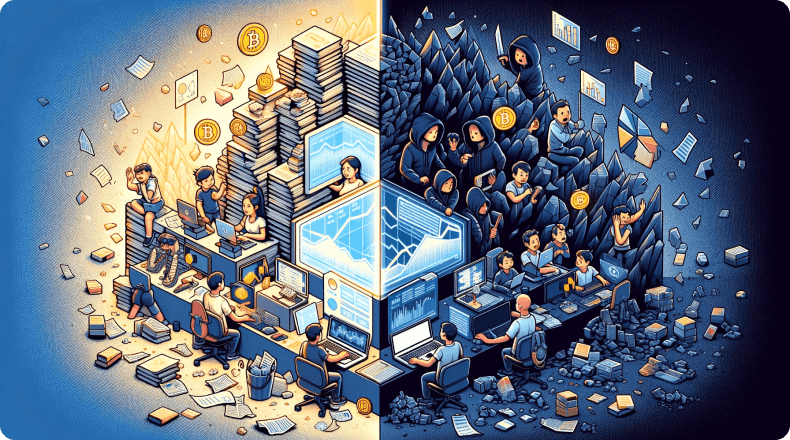
A third major challenge for every blockchain gaming developer is understanding and complying with the legal and regulatory environment of gaming. The legal and regulatory environment is a set of laws, rules, and standards, that define and control how gaming operates and behaves. By understanding and navigating their legal and regulatory environment, game developers can operate their projects legally and ethically, while avoiding or minimizing their legal risks and liabilities, and should consider the following strategies:
• Remaining updated about global regulatory changes that concern blockchain-based gaming.
• Seeking qualified and experienced legal counsel from lawyers or advisors that are gaming lawyers, or specialize in gaming law, and others, that are related to it, to reduce their legal risks and to insure their transparency with platforms, investors, the public, and others.
Community Building and Marketing
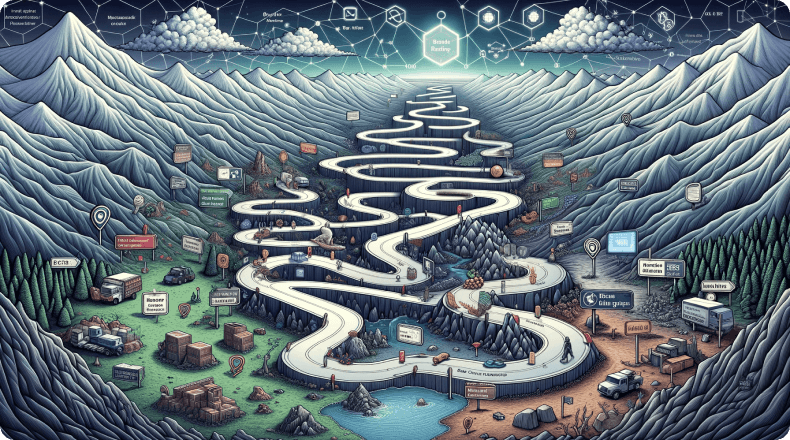
A fourth major challenge and obstacle to blockchain for gaming is community building and marketing for the project. Marketing and community building are the activities and strategies through which a game developer can create awareness, interest, and loyalty around their game. Game developers would be wise to consider the following strategies:
• Developers can use regular and meaningful interaction and communication with their users, to foster a loyal and active community around their project and developers.
• Developers should design and actualize marketing strategies that are effective and authentic and that align and resonate with their project and market. Specifically, developers can consider identifying and segmenting their target audience, and crafting marketing messages and offerings that resonate with their preferences and needs.
• App creators should be ethical and cost-effective in their marketing initiatives, especially during a bear market. By allocating their marketing budget and resources wisely and focusing on impactful and efficient marketing activities and strategies, developers will ensure that they’re creating sufficient buzz for their game and are operating within and contributing to the market’s larger ethical paradigm.
Conclusion
The blockchain gaming industry offers game developers a wide range of opportunities as well as challenges. In this article, we’ve explored some key strategies and practices to help draw from recent case studies of failures and successes to launch gaming projects effectively into a tumultuous space. Hopefully this insight and encouragement will help foster visionaries bring their ideas and passion for DeFi gaming to life. At Fgfactory, we specialize in navigating the complexities of blockchain game development with our extensive expertise. If you’re ready to turn your blockchain gaming vision into reality, don’t hesitate to contact us.
SUMMARIZE THIS PAGE
Contact us






